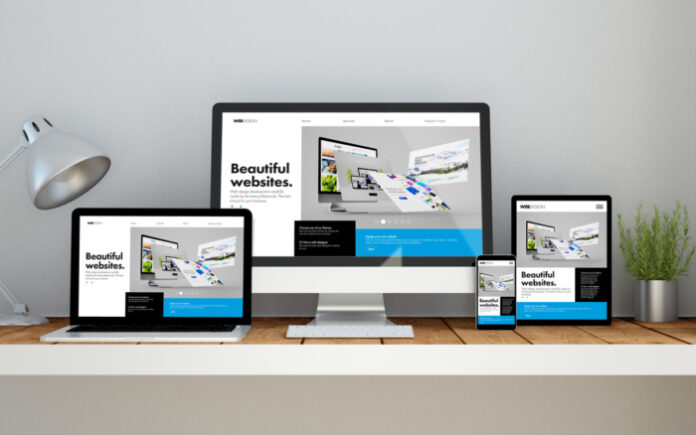Are you a blogger or content creator ready to make your mark in the digital world? Guess what? You don’t need to be a coding guru to bring your vision to life! Stellar DIY website builders for bloggers and content creators are your secret weapons.
Here’s the scoop: the right website builder isn’t just a tool; it’s your creative partner. These top 10 website builders are not just about putting things together. They’re about giving you the freedom to focus on your passion—your content—while handling all the techie stuff behind the scenes.
From drag-and-drop simplicity to dazzling design templates, these platforms are all about making your life easier and your online presence stronger. Whether you’re a fashion blogger, a travel vlogger, or a wizard at crafting engaging content, there’s something here for you. Each builder has been chosen for its user-friendliness, rich customization options, and robust functionality, tailored specifically for the creative minds of the digital age.
10 Website Builders for Bloggers and Content Creators in 2024:
1. Elementor
Elementor’s Website Builder is highly regarded among bloggers for its versatility and powerful design tools. It’s a DIY website builder that combines intuitive design with a wealth of plugins and widgets, making it ideal for those who want a tailored blogging experience.
- Features: Drag-and-drop editor, live custom CSS, and a variety of widgets.
- Pros: Extensive customization options, no need for coding skills, responsive design.
- Cons: More expensive than some alternatives.
- Pricing: Starts at $49/year for the Essential plan.
2. WordPress.com
As a staple in the blogging world, WordPress.com offers extensive features with the ability to scale as a blog grows. It’s not just a DIY website builder for bloggers; it’s a complete content management system.
- Features: Customizable themes, powerful analytics, SEO tools.
- Pros: Flexibility, a vast community, and extensive plugins.
- Cons: Can be overwhelming for beginners due to its many features.
- Pricing: Free plan available; premium plans start at $4/month.
3. Wix
Wix is known for its striking designs and extensive app market. It’s a DIY website builder that offers creative freedom with over 500 designer-made templates specifically for bloggers and content creators.
- Features: Drag-and-drop interface, Wix ADI, numerous apps.
- Pros: Highly customizable, easy to use.
- Cons: The free version includes Wix branding.
- Pricing: Premium plans start at $14/month.
4. Squarespace
Squarespace is favored for its sophisticated design capabilities, making it a go-to for bloggers who prioritize aesthetics alongside functionality.
- Features: Beautiful templates, built-in mobile optimization, and blogging tools.
- Pros: Strong design capabilities, and reliable customer support.
- Cons: Limited integrations compared to other platforms.
- Pricing: Starts at $12/month.
5. Weebly
Owned by Square, Weebly is a fantastic choice for bloggers who need an easy, reliable DIY website builder. It’s particularly good for incorporating e-commerce easily.
- Features: Drag-and-drop editor, in-built SEO, and e-commerce tools.
- Pros: Simple to use, affordable.
- Cons: More limited design options.
- Pricing: Free plan available; professional plans start at $6/month.
6. Blogger
Blogger, owned by Google, is one of the oldest blogging platforms. It’s a straightforward DIY website builder that integrates well with other Google services.
- Features: Simple blog management tools, Google integrations.
- Pros: Free to use, supports custom domains.
- Cons: Limited design and plugin capabilities.
- Pricing: Free.
7. Ghost
Ghost is an open-source, professional publishing platform built specifically for bloggers who want simplicity and speed.
- Features: Clean, intuitive interface, SEO built-in, native email subscriptions.
- Pros: Fast and focused on content creation.
- Cons: Less customizable than other builders.
- Pricing: Starts at $9/month.
8. Medium
Unlike traditional DIY website builders, Medium offers a unique platform for bloggers who want to reach an existing community without the hassle of building from scratch.
- Features: Built-in audience, simple publishing tools.
- Pros: Great for exposure, easy to use.
- Cons: Limited control over monetization and branding.
- Pricing: Free to publish; $5/month for full membership benefits.
9. GoDaddy Website Builder
GoDaddy offers a quick setup with its DIY website builder, tailored for non-tech-savvy users looking to start a blog quickly.
- Features: Integrated marketing tools, simple setup.
- Pros: Easy to use, 24/7 customer support.
- Cons: Less flexibility in design.
- Pricing: Starts at $9.99/month.
10. Zyro
Zyro is a newer player that stands out for its AI-driven functionalities, making site building fast and straightforward.
- Features: AI content generator, logo maker, heatmaps.
- Pros: Innovative AI tools, affordable.
- Cons: Limited creative freedom compared to others.
- Pricing: Starts at $2.90/month.
Several Key Factors to Consider to Ensure the Platform Meets Your Specific Needs:
1. Ease of Use
<span style=”font-weight: 400;”>Explore website builders for bloggers and content creators that offer user-friendly interfaces. This is especially important for bloggers and content creators who need to frequently update their site with new content. A platform with an intuitive, drag-and-drop editor can significantly reduce the learning curve and make website management more efficient.
2. Customization Capabilities
The ability to customize your website’s design and functionality is vital. Check whether the website builder offers a wide range of templates and customization options that can cater to your brand’s aesthetics. It’s also useful if the platform allows for CSS/HTML modifications for deeper customization.
3. SEO Features
For any website, especially a blog, SEO tools are essential. The website builder should have built-in SEO features that allow you to modify meta tags, add alt text to images, and create SEO-friendly URLs. These features will help improve your site’s visibility on search engines.
4. Integration Options
Consider what integrations the website builder supports. Integrations with social media platforms, email marketing services, and analytics tools can enhance your blogging capabilities, allowing for efficient promotions and deeper insights into your audience’s behavior.
5. Content Management Options
For bloggers, content is king. Choose a website builder that comes with robust content management systems (CMS) that make posting and modifying content straightforward. Features like the ability to schedule posts, dynamic content updates, and easy multimedia integration are particularly beneficial.
6. Mobile Responsiveness
With a significant amount of web traffic coming from mobile devices, your blog needs to be mobile-friendly. Ensure the website builder automatically creates mobile-responsive sites or provides you with the tools necessary to optimize your site for mobile devices.
7. Cost and Scalability
Finally, consider the cost of the website builder against your budget. Many website builders for bloggers and content creators offer free plans. However, these might include limitations such as ads on your site or a lack of customization features. Additionally, think about scalability – as your blog grows, the platform should be able to grow with you, potentially through upgraded plans or added features.
Selecting the right website builder involves balancing these factors based on your specific needs as a blogger or content creator. A platform that scores well on most of these factors can significantly contribute to the success and growth of your digital presence.
Conclusion
While all these platforms offer unique strengths, Elementor’s Website Builder takes the lead, especially for those who value creative freedom alongside functional depth. It’s the ideal DIY website builder for both beginners and advanced users. Its extensive plugin integrations and responsive design options make it versatile enough to handle anything from a simple blog to a complex content-driven portal.
Elementor’s Website Builder stands out not just for its technical capabilities but for fostering creativity. It provides all the tools necessary to ensure your site is not only functional but also visually appealing and unique to your personal or brand identity. The ability to customize every detail ensures that your site can grow and evolve with your content, without the need for frequent overhauls or migrations to more robust platforms.
- Features: Comprehensive theme builder, hundreds of widgets, and full revision history.
- Pros: Ultimate design flexibility, robust community support, and extensive tutorials.
- Cons: Higher price point for premium features.
- Pricing: Free version available; Pro plans start at $49/year.
FAQs
Q1: What makes Elementor’s Website Builder a better choice for bloggers over other platforms?
Elementor provides a deep level of customization and flexibility, which is crucial for bloggers who need to adapt their sites to changing content needs and personal aesthetics. Its powerful drag-and-drop editor and wide range of plugins allow for extensive functionality and design options without the need for coding.
Q2: Can Elementor handle high-traffic blogs?
Yes, Elementor is built to be scalable. It can support high traffic volumes, especially when used with a robust hosting solution, ensuring that your blog remains fast and accessible as your audience grows.
Q3: Is Elementor suitable for those with no web design experience?
Absolutely. Elementor’s intuitive interface and the inclusion of pre-built templates make it accessible for users without any web design background. Plus, the vast array of educational resources and an active community forum provide support and guidance.
Q4: How does Elementor integrate with other digital marketing tools?
Elementor integrates seamlessly with many digital marketing tools and services, including email marketing platforms, social media, and SEO tools, making it easy to create a comprehensive digital marketing strategy directly from your website.
Q5: What is the learning curve for mastering Elementor?
While Elementor is user-friendly, mastering its full range of features can take some time, especially for those who wish to utilize its more advanced capabilities. However, many users find the basics straightforward and the advanced features worth learning for the control they provide.
Q6: Are there any additional costs involved with using Elementor?
While Elementor does offer a free version, most power users will benefit from the Pro version, which comes at a cost. Additionally, while Elementor itself is budget-friendly, using it with other paid plugins or on a premium hosting platform can add to the expense.
Find a Home-Based Business to Start-Up >>> Hundreds of Business Listings.
















































